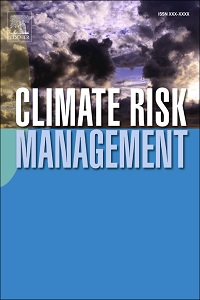Mission
To reduce hunger and poverty, and improve human nutrition in the tropics through research aimed at increasing the eco-efficiency of agriculture.
People
CIAT’s staff includes about 200 scientists. Supported by a wide array of donors, the Center collaborates with hundreds of partners to conduct high-quality research and translate the results into development impact. A Board of Trustees provides oversight of CIAT’s research and financial management.
Values
- Shared organizational ethic
- We respect each other, our partners, and the people who benefit from our work. We act with honesty, integrity, transparency, and environmental responsibility in all of our joint endeavors.
- Learning through partnerships
- We work efficiently and pragmatically together and with partners. Considering our diversity to be a key asset, we adapt readily to change and strive to improve our performance through continuous learning.
- Innovation for impact
- We develop innovative solutions to important challenges in tropical agriculture, resulting in major benefits for the people who support, participate in, and profit from our work.
Members:
Resources
Displaying 141 - 145 of 958Large scale land acquisitions and REDD+: a synthesis of conflicts and opportunities
Large scale land acquisitions (LSLA), and Reducing Emissions from Deforestation and forest Degradation (REDD+) are both land based phenomena which when occurring in the same area, can compete with each other for land. A quantitative analysis of country characteristics revealed that land available for agriculture, accessibility, and political stability are key explanatory factors for a country being targeted for LSLA. Surprisingly LSLA occur in countries with lower accessibility.
CGIAR Research Program on Water, Land and Ecosystems (WLE)
CGIAR Research Program on Water, Land and Ecosystems (WLE)
Smallholder farmers’ attitudes and determinants of adaptation to climate risks in East Africa
Adapting to climate risks is central to the goal of increasing food security and enhancing resilience of farming systems in East Africa. We examined farmers’ attitudes and assessed determinants of adaptation using data from a random sample of 500 households in Borana, Ethiopia, Nyando, Kenya, Hoima Uganda, and Lushoto, Tanzania. Adaptation was measured using a livelihood-based index that assigned weights to different individual strategies based on their marginal contributions to a household’s livelihood.





